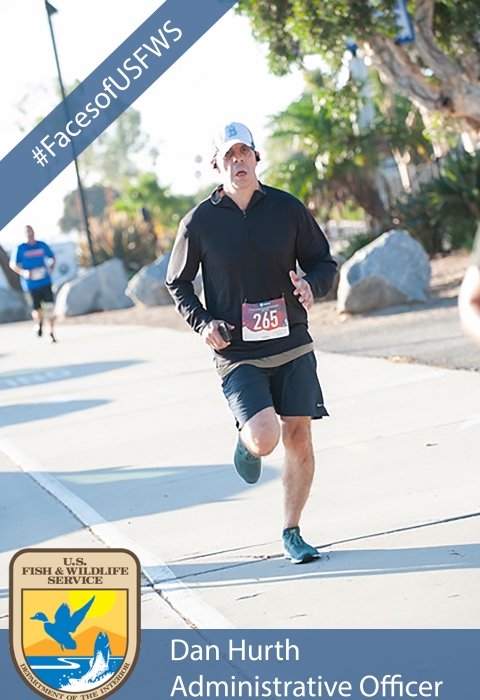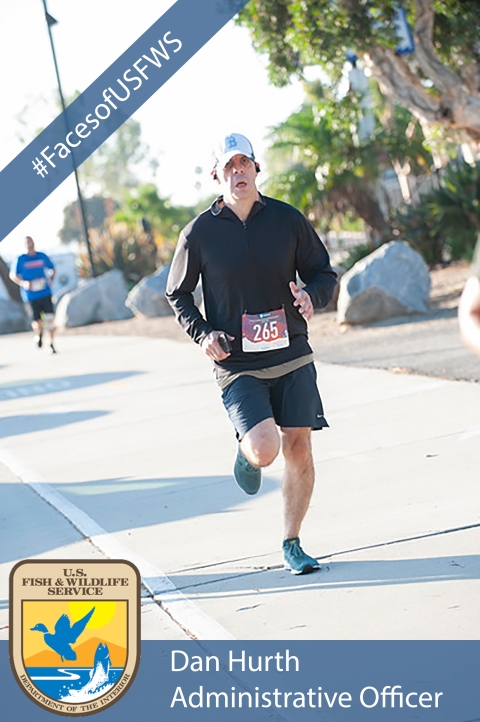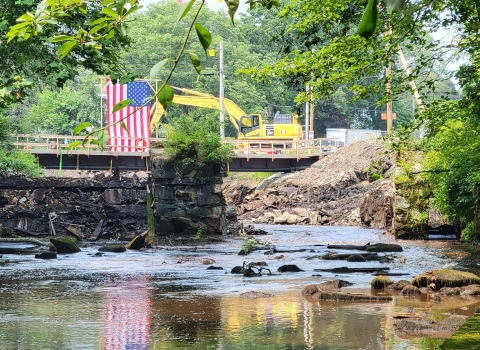By Olivia Beitelspacher, public affairs specialist
Meet our new administrative officer Dan Hurth! Dan discusses his passion for the oceans and how a desire to protect our coasts led him to career with the Fish and Wildlife Service. Learn more in our latest Faces of the U.S. Fish and Wildlife Service interview.
Olivia Beitelspacher: Welcome to the Ventura Fish and Wildlife Office, Dan! What role do you play within the agency?
Dan Hurth: My goal is be a role model, mentor, advisor, and adaptive leader. I hope to provide a positive leadership and collaborative work ethic, whereby assisting to achieve the Service’s conservation goals.
OB: We need more leaders like you! Where did you go to school and what did you study?
DH: I have an undergraduate degree in Business Management, a master’s degree in Organizational Leadership (Colorado State University), and I’m attending Northcentral University where I’m pursuing my doctorate in Business Administration.
OB: So tell me, what led you to a career with the U.S. Fish and Wildlife Service?
DH: As a lifelong learner with a deep captivation of our oceans and waterways, every attempt is made in volunteering to protect our coasts. I have seen firsthand the direct human impact to our beaches, marine life, and lands across the globe and knew I wanted to give back. One of the U.S. Fish and Wildlife Service’s greatest strengths is their grassroots focus, with emphasis in conservation, and the ability to be a part of something larger than ourselves.
OB: It’s wonderful that you were able to see a problem and wanted to take action to be a part of the solution. Do you have any conservation heroes?
DH: Imprinted on my memories is the next-door neighbor who took me out on my first capillary waves, taught me about currents, bathymetry, swells, and conservation. Over the years, other surfers on both of our nation’s coasts shared their knowledge and afforded me the opportunity to learn. They provided opportunities to return marine wildlife back to their habitat(s) and participate in organizations which help shape social change by demonstrating how their collective power can make a difference in saving our environment.
OB: Wow, it’s so great to hear that there have been people in your life who encouraged your interest in learning about conservation. Is there a particular project from your career that makes you really proud?
DH: I am particularly proud of the work I’ve done in helping to keep our beaches clean through the Surfrider Foundation. To date, volunteers have annually contributed more than $1 million dollars of their time and have pulled more than 100,000 pounds of trash and recycled materials out of the oceans. I am also pleased with my work and involvement to help improve the lives of our veterans through Habitat for Humanity; repairing their dilapidated homes and making their lives better.
OB: Those are some wonderful organizations and it’s great that you were able to work with them to engage in meaningful service with real world positive impacts. Okay last question. How do you spend your free time?
DH: Surfing, running, studying, and volunteering.
OB: What a nice variety! Sounds like a lot of fun.



